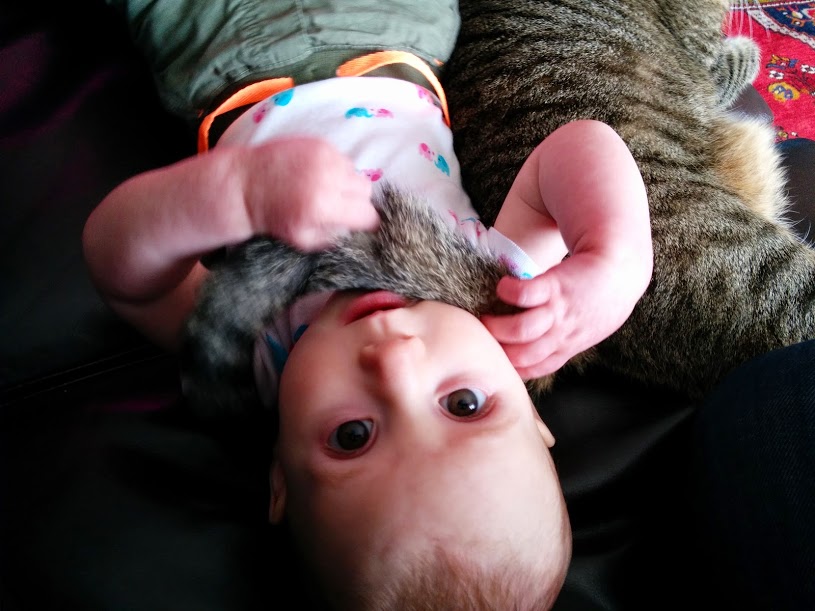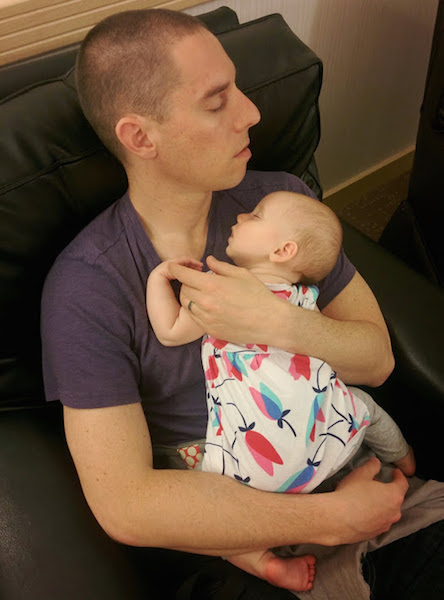Delayed Bonding
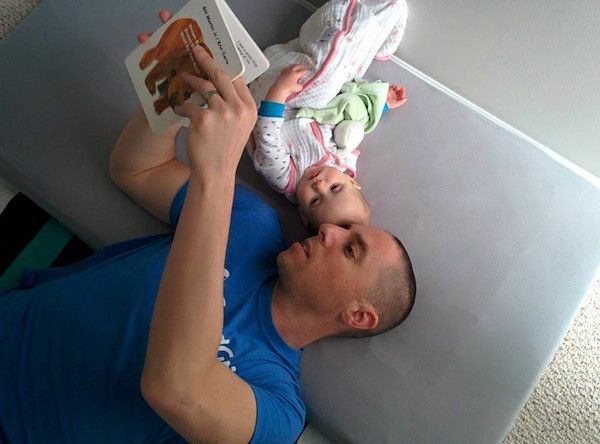
The common expectation for what happens in the moments after your baby is born goes something like this: the angels sing, the clouds part, a beam of light shines down upon your "bundle of joy," and you're overwhelmed by a warm feeling of love surpassing any affection you've ever felt for anyone.
Except, it doesn’t necessarily work that way.
For some men it does. I have friends who were 100% smitten out of the gate. But for a lot of men (and women too, but I’ll stick to writing what I know), it’s months before their actual affection approaches what they think they "should" feel.
You may not love your baby right away. That’s okay.
My wife, Rachel, had a traumatic labor. I watched the woman I loved most suffer more than I'd ever seen. When Emma came out – crying, malformed head, covered in blood and mucus – I looked at her thought, “If the last twelve hours was the cost for this, I’m not sure it was worth it.” 1
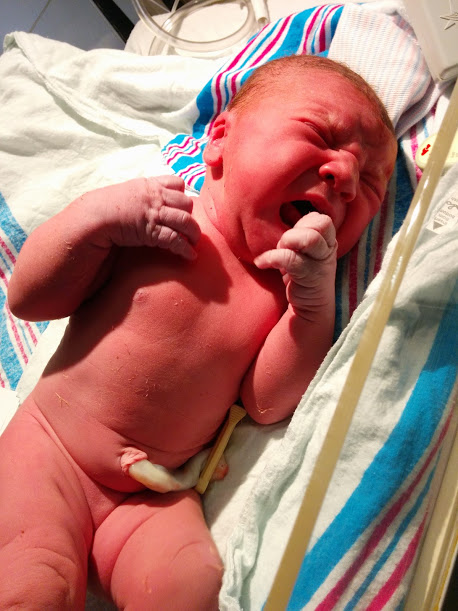
Fortunately, several men2 had warned me that I might not fall in love with my baby right away. If you expect to and it doesn’t happen, you end up with shame piled on top of the already heavy load of being a new parent.
After all, what kind of monster doesn’t love their baby?
To be clear, becoming a dad probably will be the best thing that ever happens to you. You almost certainly will, eventually, develop a deep love for your child unlike anything you've ever experienced. A love that will make all other things in life insignificant by comparison. But you might not feel that way for awhile. And it’s quite possible that, in the beginning, you won’t enjoy being a dad at all.
Affection isn’t a light switch. Rachel and I have been married for five years. I love her a lot more today than I did on the day we met. Looking back, there are a number of qualities about Rachel that helped my affection grow. She's pretty, smart, resourceful, and funny. She cares about me and my needs. She looks me in the eye, listens to me, and we have meaningful conversations. She laughs and smiles more than she whines and cries. She doesn't wake me up at 1 am. And 3 am. And 5 am. She doesn't shit herself daily and expect me to clean it up.
And yet, even with all that going for Rachel, it still took me a while to warm up to her.
So if you’re a new dad asking yourself, “Why don’t I love my baby?”, don’t worry. It's called “delayed bonding” and it’s perfectly normal. A better question might be, “Aside from vanity and evolution, for what possible reason would I feel affection for this thing?”
Over the next few months, three factors will go to work on your heart to rectify the situation.
Baby Gets a Personality
Four months is around the time things start to get interesting for dad. That’s when baby starts doing more than just feeding, pooping and sleeping. Namely: eye contact, smiling, and laughing.

Actually, the smiling starts a little earlier (that GIF is from around two months) but it’s inconsistent and typically results from a bowel movement – which does fill me with warm and fuzzies.
The good stuff though, is when you can make her laugh.
The watershed moment for me was The Claw. My hand would raise high in the sky, menacingly open and close, then descend upon her with appropriate sound effects. As it closed in on her belly, I’d give her a good shake and she’d return a hearty giggle.
But then something super cool happened: anticipation. I’d throw up The Claw and she’d stop fidgeting, stare at my hand, then start giggling before The Claw even moved. That’s around the time she started being a “person” to me: when her brain started putting pieces together instead of simply reacting to whatever stimulus popped into frame. That’s also when I realized, “I can teach her tricks.”
Dad Gets Routines
In those first few months, the answer to pretty much every problem was “breastfeeding.” The only routine was: “Baby cries, Rachel feeds.” Rachel and Emma were inseparable, and there were few baby-related problems that I was uniquely equipped to solve. I could change a diaper, but Rachel was already there. I could make the token effort to get out of bed and pull the baby out of her crib in the middle of the night, but we both knew how things were going to play out.
As Emma’s gotten older, we’ve been able to create more space for me to contribute directly to parenting as opposed to just, say, doing the dishes. I take Emma and the dog out for a long walk in the morning so Rachel can get another hour of sleep. At night I give Emma a bath, read her a story, and put her to bed.

I miss our rituals when I’m away. I miss Emma more. I miss her to the point where I was watching her sleep over the camera in her bedroom while I was in San Francisco last week for work.
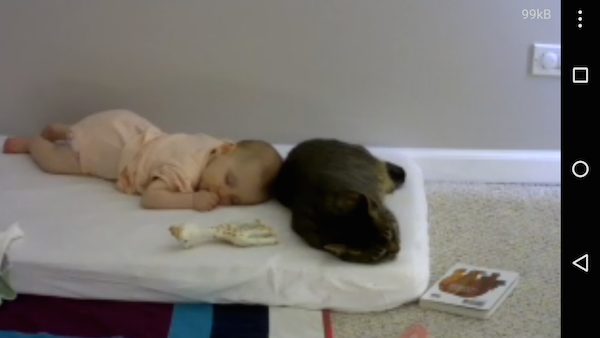
You care more about the things you’re involved with. Familiarity and anticipation lead to affinity and affection. There’s a lot more of all of those as your baby gets older.
Affection Compounds
There’s another natural law at play on your heart – one of the most powerful and under-appreciated laws in the universe: compound interest.
I can confidently make three assumptions about my affection towards Emma:
- I liked her some, but not a lot on Day 1.
- I like her a little more every day.
- Paternal affection grows exponentially, not linearly (ask any dad).
Let’s say I got ten “affection points” for Emma on the day she was born. And let’s say “a little more” is 1%.
10 * 1.01 ^ 180 = 60
10 * 1.01 ^ 365 = 378
10 * 1.01 ^ (365 * 2) = 14,300
By six months, I’m at 60 affection points – six times more than the day she was born. By twelve months, I’m at 380 affection points. At two years, she owns me.
So, if you’re a new dad, and you’re concerned that you don’t love your baby as much as you "should", don’t fret – you’ll get there. In the meantime, know that while you can’t control your feelings, you can control your actions, and your actions have a profound effect on your feelings.
Act as if you love the shit out of your child.
You will.

